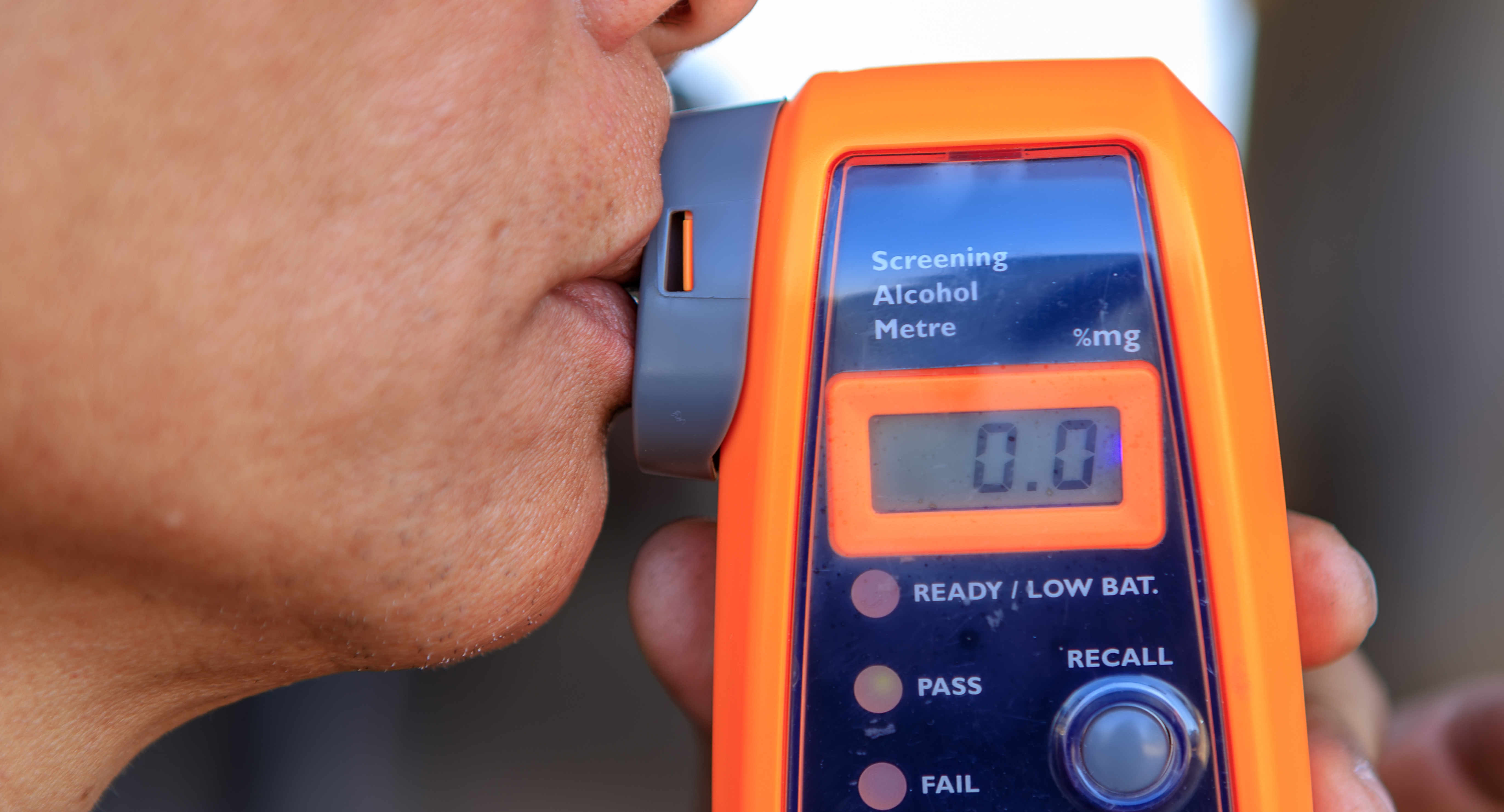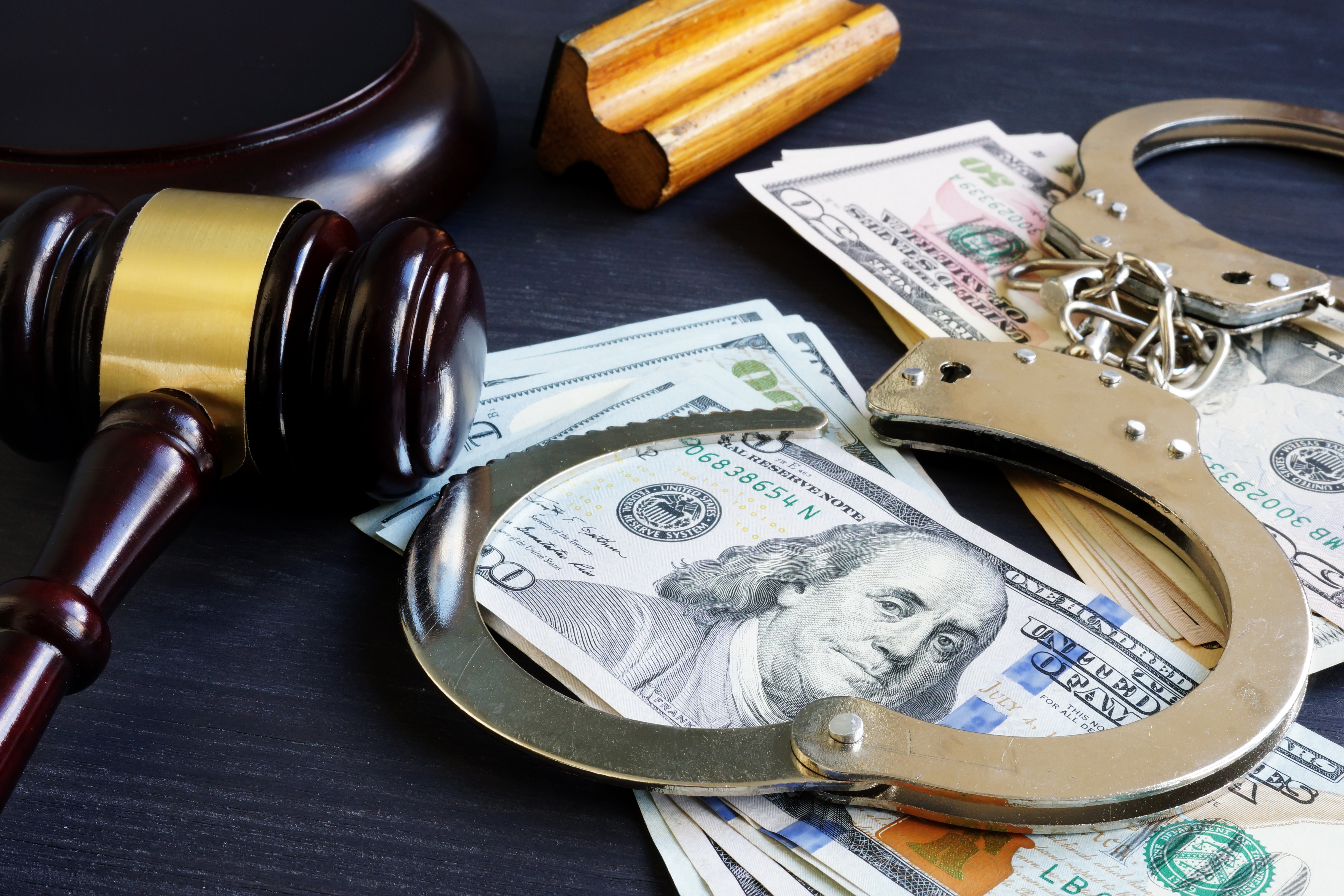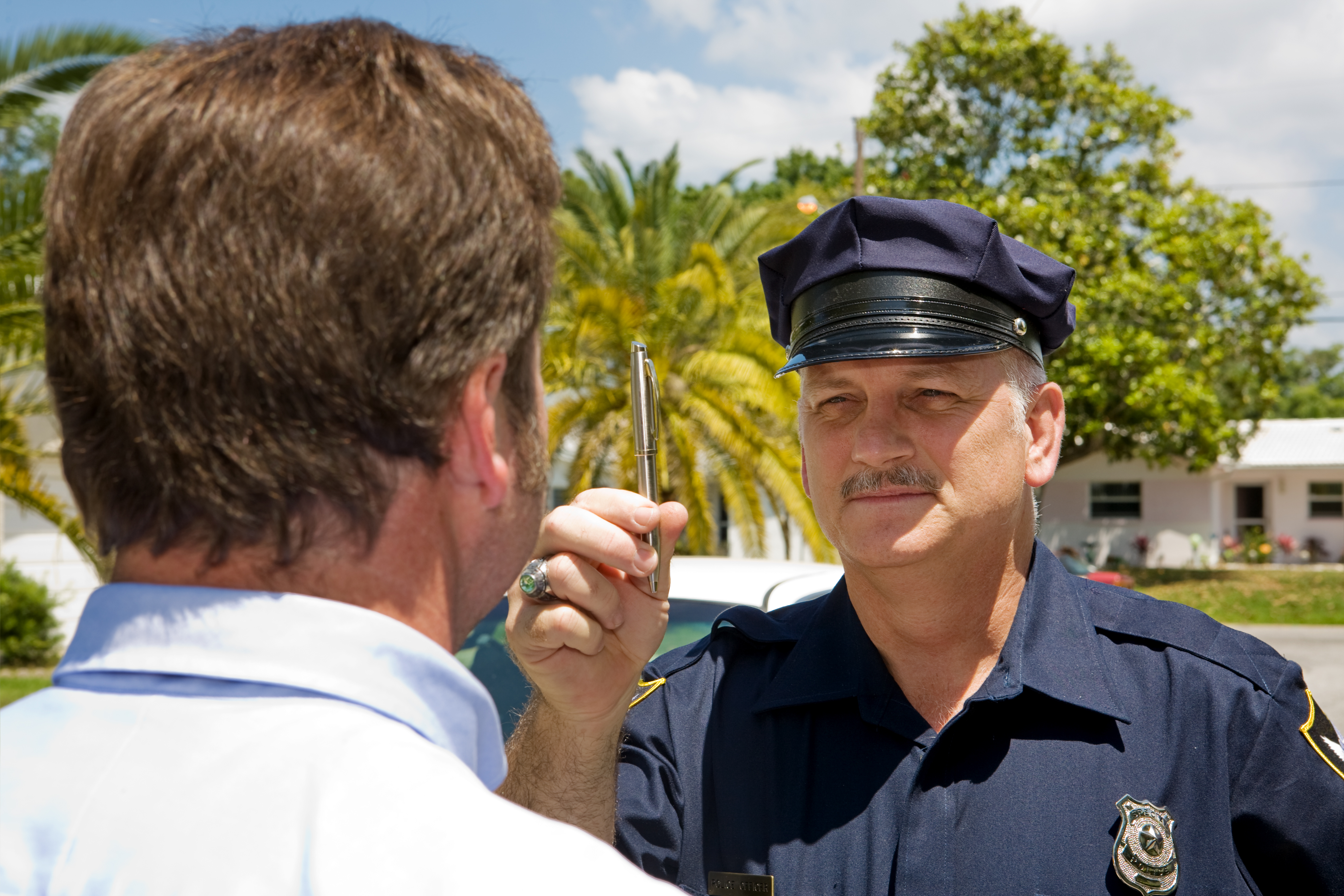- If you’re under 21, you do not need to reach the standard blood alcohol content (BAC) limit of .08%
- You can be arrested and charged if you have any amount of alcohol at all in your system
- First-time minor DUI offenders can still face DWI (Driving While Intoxicated) charges if their BAC is .08 or higher
In Texas, DUI refers specifically to young adults under the age of 21 who drive with any detectable amount of alcohol in their system.
Many of our clients don’t always understand that Texas is a zero-tolerance state for minors, meaning that there is no minimum requirement for blood alcohol concentration for anyone under 21. If a police officer suspects that there is even a trace amount of alcohol in your system, you will be charged with DUI by Minor.
Not only are first-time minor DUI offenders in Texas facing fines, mandatory alcohol education classes, and the risk of losing their driver’s license – a DUI conviction can dramatically affect your future, so it’s important to act swiftly to build the strongest possible defense.
The guide below will help you better understand DUI by Minor charges, penalties, consequences, and most importantly, how to beat your charges.
DUI or DWI Charges for Minors: What’s the Difference?
Texas is a “No Tolerance” state. Unlike drivers who are 21 or older, a minor need not have a blood alcohol content (BAC) of .08. An individual under the age of 21 who has any detectable level of alcohol in their system is subject to criminal charges.
There are two important distinctions to remember about underage DUIs and DWIs in Texas: Your age and your blood alcohol concentration.
These are important distinctions. Under Texas law, minors between 18 and 20 will be tried as adults, while those 17 and under will be considered juveniles. In addition, anyone between 18 and 20 who has a blood alcohol concentration of .08 or higher (the legal limit for adults in Texas) will be charged with DWI, and the penalties will be more significant.
The Texas Penal Code defines driving under the influence by a minor in the following way:
Sec. 106.041. (a) A minor commits an offense if the minor operates a motor vehicle in a public place, or a watercraft, while having any detectable amount of alcohol in the minor’s system.
When the individual is either at .08% or above (or below this level but shows clear signs of impairment), the charge is DWI. However, even if the minor shows no signs of intoxication but has any level of detectable alcohol in their system, the court can still charge the young driver with DUI. In this case, it is sometimes referred to as DUIA (Driving Under the Influence of Alcohol).
Penalties and Consequences of DUI By Age Group
Texas law treats drunk driving offenses by minors very seriously. The legal consequences of drunk driving depend on the driver’s age and severity of the circumstances.
Texas classifies DUI by Minor in a few different ways. At the very minimum, the state will designate a first DUI offense as a Class C misdemeanor. Depending on the individual’s age though, and the number of prior DUI convictions, the state could instead classify the offense as a Class B or Class A misdemeanor, respectively, or even a third-degree felony.
Intoxication assault, intoxication manslaughter, and repeat or habitual violations, for example, all carry heavier penalties.
Minors under 17 face slightly different penalties than those between 17 and 21.
Here is a breakdown of the penalties and consequences by age group.
Consequences of DUI for Drivers Under Age 17
When law enforcement discovers an individual older than 10 years but under 17 years of age operating a motor vehicle or watercraft in a public place with alcohol in their system, the court will try the individual as a juvenile.
Penalties for driving under the influence will increase with each subsequent offense. It’s worth remembering that DUI and DWI convictions remain on your record permanently and can be used at any date in the future to elevate new DWI charges.
| First offense | Second offense | Third offense | |
| Classification | Class C misdemeanor | Class C misdemeanor | Delinquent Conduct by a Minor 10 to 17 |
| Fines | Up to $500 | Up to $500 | Up to $500 |
| Community service | 20 to 40 hours | 40 to 60 hours | 40 to 60 hours |
| License suspension | 60 to 180 days | 120 days to two years | 180 days to two years |
Offenders will also be required to attend a mandatory alcohol awareness class.
Consequences of a DUI for Drivers Between Ages 17 to 21
The DUI penalties for minors aged 17 to 21 could potentially be a bit more harsh.
The state will try individuals 17 and above as adults instead of juveniles. This means fines could be closer to the maximum, or driver’s license suspensions could be longer than if the offender is younger than 17.
If law enforcement discovers a blood alcohol concentration of less than 0.08% and they do not observe signs of intoxication, the charge will be a Class C misdemeanor.
Jail time, fines, and driver’s license suspensions increase with each offense. Courts will probably be less likely to waive the driver’s license suspension or offer probation instead of a jail sentence for repeat offenders.
| First offense | Second offense | Third offense | |
| Classification | Class C misdemeanor | Class C misdemeanor | Delinquent Conduct by a Minor 10 to 17 |
| Fines | Up to $500 | Up to $500 | Up to $500 |
| Community service | 20 to 40 hours | 40 to 60 hours | 40 to 60 hours |
| License suspension | 60 to 180 days | 120 days to two years | 180 days to two years |
However, if the BAC is .08% or higher, they could be charged with DWI by a minor, which carries the same penalties as DWI for adults.
Penalties for DWI by a Minor Age 17 to 21
| First offense | Second offense | Third offense | |
| Classification | Class B misdemeanor | Class A misdemeanor | Third-degree felony |
| Fines | Up to $2,000 | Up to $4,000 | Up to $10,000 |
| Jail | Between 3 to 180 days | Between 30 days to one year | Between two to 10 years |
| License suspension | Up to one year | 180 days to 18 months | 180 days to two years |
| Ignition interlock device requirement | Only as a condition of getting an Occupational License | A year (with a prior conviction within 5 years) | A year (with a prior conviction within 5 years) |
If your child is facing a DUI/DWI charge, our team at Michael & Associates can help. Contact us today to schedule a free case review.
We have experienced ALR specialists and three certified DWI specialists who are experts in gas chromatography, an analytical technique commonly used to determine blood alcohol concentration. This can help us look for flaws in blood or breath testing.
A DWI conviction can remain on your record for life, affecting your ability to work in certain fields and even rent an apartment. Don’t trust your child’s future with an experienced attorney.
How to Beat DUI Charges in Texas
A DUI conviction can have lifelong consequences. It can affect career prospects and college admissions and will appear on background checks for the rest of your life.
Fighting the charges is crucial.
We have several strategies we employ to fight DUI charges. Each one carries its own benefits and challenges, depending on the unique aspects of your case. Your attorney will know which one(s) to use for the best possible outcome. A few of these strategies include:
Hire an Experienced Attorney
You should look for an attorney experienced with DUI and DWI cases in your area. Court protocols can vary by jurisdiction, and you need someone who knows the key procedures and players in your corner. At Michael & Associates, we have lawyers based across the state, so one of our team members will be familiar with your area’s court system. Our team also includes three certified gas chromatologists who completed Axion Labs’ premier certification program – they have the expertise to analyze your blood test results to look for anomalies.
Schedule an ALR Hearing
An Administrative License Review hearing must be scheduled within 15 days of your DUI arrest. At the ALR hearing, your lawyer can contest the suspension of your driver’s license by the Texas Department of Public Safety. This can also be a valuable opportunity for your lawyer to learn about the evidence DPS has against you and look for weaknesses in their case.
If you do not request an ALR hearing within this period, your driver’s license will be automatically suspended administratively.
File a Motion to Suppress
Your attorney can request that the court exclude certain evidence from your case if law enforcement or other individuals obtained it unlawfully.
This can involve any questionable sobriety test results or video footage from the arrest that contradicts information included in the police report from your arrest.
Negotiate a Plea Bargain
If your lawyer believes a conviction is inevitable, you may plead guilty to certain charges instead of fighting them in exchange for decreased penalties.
Your attorney will negotiate with the prosecution to get you the best possible deal. If you agree to install an ignition interlock device, they may be able to reduce the amount of time your license is suspended or eliminate a suspension at all. If both sides can’t agree, the case will go to trial.
If the two sides cannot agree, the case will go to trial. If the defendant is found guilty at trial, the punishment will most likely be much more severe than the plea deal offered.
According to statistics from the Department of Justice’s Bureau of Justice Assistance, 90% to 95% of criminal cases end with a plea bargain.
Take Your Case to Trial
While our goal is typically to prevent your DUI from reaching this point, that isn’t always possible. In a trial, the prosecution must prove every aspect of its case beyond a reasonable doubt. If your lawyer has good reason to believe the prosecutor’s case isn’t strong enough, they may take this route.
Contact Us Today for a Free Case Review
Don’t wait until it’s too late to seek experienced legal help. The stakes are high, and our team at Michael & Associates can help. We have specialists on our team who can help you win your ALR hearing, blood testing experts who can contest results of BAC tests, and create a custom approach for every client based on the details of their specific case.
We will work tirelessly to get you the best possible outcome and have a 98% success rate in Texas DWI and DUI cases.
More Common Questions We Get
Am I Eligible for Probation for a First DUI Charge?
DUI can have serious consequences, including suspension of your driver’s license for 90 days to a year. However, it’s possible that an experienced attorney can convince the court to allow probation instead of a jail sentence and perhaps waive the license suspension, but this is only likely if you’re a first-time offender.
Is It Possible to Avoid Jail Time for a First DUI Offense in Texas?
Only drivers under the age of 21 in Texas can be charged with DUI, and there is no jail time for a DUI offense. DWI is a different story. While jail time is unlikely for a first DWI offense, it is not completely off the table. However, an experienced attorney can help keep you out of jail, negotiate reduced penalties, or even get your case dismissed. It’s important to choose the best possible representation when facing DWI charges.
What is the Most Common Sentence for a First DUI in Texas?
First-time DUI offenders in Texas will likely face misdemeanor criminal charges. You will most likely be sentenced to probation and have your driver’s license suspended. However, the penalties may be more severe if your case involves extenuating circumstances such as having a child in the car or causing an accident.




